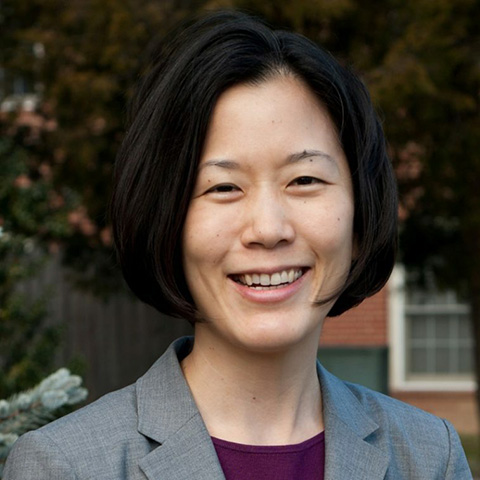
Lum is a member of CCJ’s Board of Trustees and served as a member of the Council’s Task Force on Policing.
Cynthia Lum is Professor of Criminology, Law, and Society and Director of the Center for Evidence-Based Crime Policy at George Mason University. She researches primarily in the areas of policing, evidence-based crime policy, crime prevention, technology, and translational criminology. Her works in these areas include evaluating the impacts of patrol and detective activities, interventions, and technologies; understanding the translation and receptivity of research in policing; and measuring police proactivity. With Dr. Christopher Koper, she has developed the Evidence-Based Policing Matrix (with Cody Telep) and the Matrix Demonstration Projects, translation tools designed to help police practitioners incorporate research into their strategic and tactical portfolios.
Professor Lum is an appointed member of the Committee on Law and Justice (CLAJ) for the National Academies of Sciences (NAS), and has also served on the NAS’s Committee on Proactive Policing as well as its Standing Committee on Traffic Law Enforcement. She is a member of the National Police Foundation Board of Directors, the Research Advisory Committee of the International Association of Chiefs of Police, the Misdemeanor Justice Project at John Jay College of Criminal Justice, and an Executive Counselor for the American Society of Criminology. She is the founding editor of Translational Criminology Magazine and the Springer Series on Translational Criminology, and served as the first North American Editor for the Oxford Journal Policing: A Journal of Policy and Practice.
Lum is a Fulbright Specialist in policing and criminology and is the co-Director of the International Summer School for Policing Scholarship, developed with colleagues at the Scottish Institute for Policing Research and Arizona State University.
Her recent book, with Christopher Koper, is Evidence-Based Policing: Translating Research Into Practice (2017, Oxford University Press). Professors Lum and Koper are Editors-In-Chief of Criminology and Public Policy, the flagship policy journal of the American Society of Criminology.

The Council on Criminal Justice is founded on the belief that a fair and effective criminal justice system is essential to democracy and a core measure of our nation’s well-being.
Your tax-deductible support ensures that the Council can advance solutions that enhance safety and justice for all.